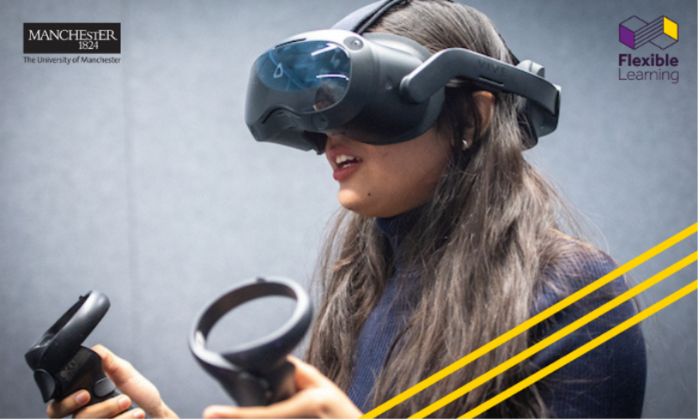Teaching transformed: Lessons from Flexible Learning Pilots
01 Sep 2025
As part of the University of Manchester’s commitment to reimagining education for a changing world, our Flexible Learning pilots have been testing bold new approaches to teaching and learning across disciplines.

With ten pilot projects now completed and ten more due to be finished soon, we’re proud to share what’s worked and what we’ve learned so far in the Flexible Learning Programme.
What’s been successful?
From immersive technologies to AI-assisted feedback, our pilots have demonstrated the power of innovation to enhance student experience and academic practice:
- Digital transitions suite: A comprehensive onboarding package for new students, including personalised welcome videos, academic refreshers, and digital skills support, has improved early engagement and confidence in online learning environments.
- Evaluating Graide AI for STEM assessment: As AI emerges into the higher education, the Graide AI pilot successfully evaluated whether this AI tool is suitable to assist with marking STEM subjects and whilst there was evidence of its potential to support faster and higher quality marking by making suggestions, the pilot concluded that overall it did not deliver anticipated benefits.
- Active feedback: Pilots across all three faculties have shown that structured, interactive feedback methods can boost learnersatisfaction and performance—especially in transnational and micro-credential contexts.
- Immersive virtual labs: Bespoke virtual simulations have allowed students to practise complex lab techniques in photorealistic virtual environments, addressing space and resource constraints while enhancing practical skills.
- GenAI in Teacher Education: The TeachMateAI pilot in the PGCE programme has opened new possibilities for integrating generative AI into curriculum design, assessment, and school-based training.
- Microcredentials: The Developing Resilience in Turbulent Timesmicrocredential course attracted global learners and provided access to a Manchester educationfor new types of learners.
What have we learned?
While the pilots have delivered exciting results, they’ve also surfaced valuable insights:
- Digital tools need pedagogical framing: Tools like Knowledge Forum and immersive labs are most effective when embedded in clear learning outcomes and supported by staff training.
- Flexibility: Successful pilots tailored delivery modes to student needse.g. dual delivery inbiosciencesallowed students to choose between synchronous and asynchronous formats
- Microcredentials work best with specific audiences: Pilots like the Developing Resilience in Turbulent Timesseries succeeded by targeting specific learner groups with well-defined outcomes and assessments that aligned to their needs.
- Immersive tech is promising but requires dedicated resource: VR and simulation pilots show strong engagement but requires further upfront investment in design, equipment, and staff support to maximise its potential.
What’s next?
As we head towards the conclusion of the Flexible Learning Programme this December, we’re excited to continue spotlighting the final wave of pilots wrapping up over the coming months. Each one brings fresh insights and bold experimentation, which has provided us with real opportunities to learn lessons and understand what works well and what doesn’t.
We’ll be evaluating all our Flexible Learning pilots and sharing recommendations on how the University can use the pilot model as aneffective mechanism through which to support the implementation and evaluation of new ideas.
Our goal? That these pilots not only showcase innovative approaches to teaching and enhancing the student experience but also spark grass-roots inspiration across the University to keep pushing the boundaries of what’s possible and supporting the vision and ambitions for Manchester 2035.
